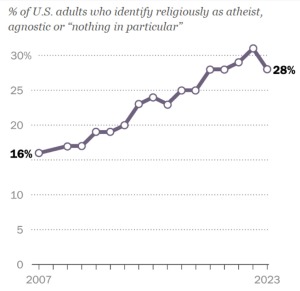Bird order
 Just from outward morphology, I never would guess that grebes and flamingos form their own biological order. Nor would I lump cuckoos and bustards. But when it comes to taxonomy, genetics tells the tale. Sometimes its analysis can be difficult. A group of bioinformatic researchers spread throughout the world has uncovered the route of early bird evolution. (Cite.) DNA is subtle, but it doesn’t lie. Time will tell if the new interpretation holds.
Just from outward morphology, I never would guess that grebes and flamingos form their own biological order. Nor would I lump cuckoos and bustards. But when it comes to taxonomy, genetics tells the tale. Sometimes its analysis can be difficult. A group of bioinformatic researchers spread throughout the world has uncovered the route of early bird evolution. (Cite.) DNA is subtle, but it doesn’t lie. Time will tell if the new interpretation holds.
 March 21st was a warm and overcast morning in Corpus Christi. The hawks somehow decided it was their day to move north. On a walk, I saw at least five kettles forming over the city. The first photo shows one of those. Click to expand, look to the right and slightly up from the spire tip, and you will see dozens of hawks of different species against the clouds. Notice they are not in formation. The group behavior stems from the search for thermal currents. They enter and leave the kettles individually.
March 21st was a warm and overcast morning in Corpus Christi. The hawks somehow decided it was their day to move north. On a walk, I saw at least five kettles forming over the city. The first photo shows one of those. Click to expand, look to the right and slightly up from the spire tip, and you will see dozens of hawks of different species against the clouds. Notice they are not in formation. The group behavior stems from the search for thermal currents. They enter and leave the kettles individually.
 As I walked under one of the kettles, I noticed three silhouettes that were distinctly not hawk shaped. (Second photo, right.) And flying as a group. Those are American white pelicans. They must have figured if it was time for the hawks to move north, it was time for them, also.
As I walked under one of the kettles, I noticed three silhouettes that were distinctly not hawk shaped. (Second photo, right.) And flying as a group. Those are American white pelicans. They must have figured if it was time for the hawks to move north, it was time for them, also.
From the next bit of research, I’m a bit skeptical of the notion that male grackles are more adventurous than females at foraging from diners. It seems to me it usually is the females that jump up on the table, and look at me as if to say, “are you done with that?”
The last photo is just a ruddy turnstone posing on a rock next to the bay. Because it is spring.
Numeracy and politics
 A weekend editorial complains that Trumpism is driving people away from religion. And, yes, churches that support Trump show something quite ugly about their own moral sense. But. What data we have shows that the nonreligious were growing long before Trump entered the political scene. Looking at the graph right, there is no obvious inflection around that timeframe. Which suggests the causes are broader than one man or even a political movement.
A weekend editorial complains that Trumpism is driving people away from religion. And, yes, churches that support Trump show something quite ugly about their own moral sense. But. What data we have shows that the nonreligious were growing long before Trump entered the political scene. Looking at the graph right, there is no obvious inflection around that timeframe. Which suggests the causes are broader than one man or even a political movement.
Though I suspect the author was well-intentioned, they make one of the most common mistakes in writing about trends. Before crediting a causal story based on an alleged change, always look at a graph of actual data, showing large enough timeframe to see what went on before.
Political pundits routinely distort data about what is happening. Many of Trump’s cheerleaders touted how he turned the economy around. The fact is that the US economy in his first three years continued on much the same course as under Obama. His pundits badmouth the current economy. The truth is that if Trump were now president and the economy were exactly the same, they would tout it as a huge success.
I suspect many people get fooled by such things, because they lack the technical experience to think about numerical data. It’s hard to make that excuse for Elon Musk, who is spreading bullshit about Texas and other states registering non-citizens to vote.
Update: And now I read about the turmoil team Trump is causing at the RNC:
The loss of talent may be particularly notable on the RNC’s data team – increasingly important in presidential elections – which is being relocated out of RNC headquarters in Washington and to the Trump campaign’s headquarters in Palm Beach, Florida. … Some staffers who declined return offers suggested they disliked the notion of living at work, which might also mean living alongside the most hardcore Trump campaign staffers.
People good at collecting, scrounging, and interpreting data generally aren’t ideologues.
Laws are for poor people
Someone reading the news on Trump’s effort to navigate the abortion issue might remain puzzled what his own personal outlook is. That draws more into focus by looking at his related behavior. He knows that if he — or any of his sons — have a consort who becomes awkwardly pregnant, there are many places in the world where she can acquire a legal abortion in private. Flown there on private plane, attended by family servants, if she still is desired. Otherwise, handled at arm’s length by a loyal attorney.
Which makes the issue to him entirely one of political football. He wants to retain the zealous support of evangelicals, without losing votes from too many who might otherwise support him. It’s all about Trump winning. As to all those for whom this a core issue of personal liberty? They don’t matter, especially if they don’t support him.
Infrastructure
 For all its importance, infrastructure gets little notice. Until something goes wrong. Then we get flooded with ignorance and conspiracy theories from the usual quarter.
For all its importance, infrastructure gets little notice. Until something goes wrong. Then we get flooded with ignorance and conspiracy theories from the usual quarter.
If you want something more substantive, read about the relative costs of building transit systems in different nations.
Photo shows the new Corpus Christi harbor bridge under construction.
Christian nationalism
The Patriarch of the Russian Orthodox Church just sanctified Russia’s invasion of Ukraine:
From a spiritual and moral point of view, the special military operation is a Holy War, in which Russia and its people, are defending the single spiritual space of Holy Russia.
 Which doesn’t surprise anyone with an acquaintance of Russian history, and its long entanglement of religion and politics. Or anyone who knows a bit of Christian history more broadly, which exhibits century after century after century of holy war against Muslims, pagan Europeans, indigenous people of other continents, Cathars, and assorted heretics. And similarly Islamic history, with its religion-driven conquest.
Which doesn’t surprise anyone with an acquaintance of Russian history, and its long entanglement of religion and politics. Or anyone who knows a bit of Christian history more broadly, which exhibits century after century after century of holy war against Muslims, pagan Europeans, indigenous people of other continents, Cathars, and assorted heretics. And similarly Islamic history, with its religion-driven conquest.
This is an important part of how the major religions spread throughout the world. Rulers and would-be rulers find it useful, because it lures people into thinking they are fighting for a spiritual cause, rather than a messy, political one. Even the most crooked can work that trick.
If you wonder that the trick works, consider an example. On an objective reading, the Hundred Years War is one of those long dynastic struggles between the houses of Lancaster, Valois, and Burgundy, the last two related. Shakespeare tries to make Henry V a hero, giving him words that will be repeated again and again in patriotic fervor. Was Henry anything more than a king fighting for territory and power? He wins a treaty promising him Charles VI’s lands on the latter’s death. Unsurprisingly, their sons, Henry VI and Charles VII, continue the war. There was nothing holy about it.
Unless … you’re a teenage girl from Domrémy, convinced by angelic visitation that Charles is the ruler chosen by God. I doubt many today believe in the divine right of kings. But how many swoon over the story of Jeanne la Pucelle (Joan of Arc)? All it takes is a timely religious voice to sanctify the desires of a king or strongman, to exalt the speaker as inspired, and to convince the pawns that their sacrifices are not for temporal politics, but have some larger meaning. The trick works. I suspect the majority of people in Russia laugh at Putin’s show of religious nationalism. And similarly, most Americans are stunned that anyone seriously takes Trump as somehow ordained by Jesus. Alas, small armies of devout followers carry real power. The trick works.
Making attorneys get attorneys, #2
A California judge yesterday ruled that John Eastman should be disbarred. While there are more steps and appeals before his disbarment is final, he no longer may practice law:
Eastman made multiple patently false and misleading statements in court filings, in public remarks heard by countless Americans and to others regarding the conduct of the 2020 presidential election and Vice President Pence’s authority to refuse to count or delay counting properly certified slates of electoral votes on January 6, 2021.
 Pat Philbin’s testimony hurt him. As with the other coup participants, the key witnesses describing their crimes are fellow Republicans who tried to act honestly and legally at the time. Quite a few Trump lawyers still are in line for professional sanction. Jeffrey Clark may be next to lose his license.
Pat Philbin’s testimony hurt him. As with the other coup participants, the key witnesses describing their crimes are fellow Republicans who tried to act honestly and legally at the time. Quite a few Trump lawyers still are in line for professional sanction. Jeffrey Clark may be next to lose his license.
Of course, Eastman and Clark also are under criminal indictment. The courtroom sketch by Elizabeth Williams, right, shows Bernie Madoff being removed from the court. Let’s hope some future such sketches feature the coup’s ringleaders.
Eastman has figured out where to ply his grift, to help pay his legal fees.
Update: Gabriel Schoenfeld writes a good article on Eastman’s predicament:
EASTMAN ARGUED IN COURT that he could not be found guilty because his statements amounted to nothing more than “zealous advocacy” on behalf of his client, and what is more, his writings and speech were protected by the First Amendment. Both of these defenses failed. Judge Roland noted that while zealous advocacy on behalf of a client is indeed a lawyer’s duty, his “primary duty” is to the truth, and it is a grave breach of ethical obligations to present falsehoods in support of legal arguments. As for the First Amendment, it of course protects freedom of speech, including the spreading of lies, which by itself is not a crime. But Eastman was charged with making false statements in his capacity as an attorney. It is well established that, to preserve public confidence in the legal system and to maintain professional standards, the state can professionally punish attorneys who lie or mislead the public.
Cameras and evidence
 At the turn of the year, Leica introduced a camera with content authentication. Other camera manufacturers are looking to follow suit. I previously wrote that trying to characterize AI generated content was the wrong approach, that instead, devices with digital sensors should sign the data they produce. At the time, I did not realize there already were standards in the works for image data. I’m glad to see content authentication implemented in retail devices, and look forward to its working its way down into cellphones.
At the turn of the year, Leica introduced a camera with content authentication. Other camera manufacturers are looking to follow suit. I previously wrote that trying to characterize AI generated content was the wrong approach, that instead, devices with digital sensors should sign the data they produce. At the time, I did not realize there already were standards in the works for image data. I’m glad to see content authentication implemented in retail devices, and look forward to its working its way down into cellphones.
Wilt Chamberlain holds the NBA record for most points in a game. On March 2, 1962, he scored a 100 points for the Philadelphia Warriors, against the New York Knicks. There is no video of the game. Which isn’t surprising, given the state of pro sports and the media in 1962. There are conspiracy theorists who use that fact to argue the game was somehow faked. Which isn’t surprising, given how poorly people think about history. David Head uses that example to look at the problem of thinking that past times are like the current time.
Photo shows Diane Arbus, with her favored camera.
Too crazy for the Daily Wire??
Unless you are a news junkie, you may never have heard of Candace Owens. She is a favorite pundit of the MAGA cult. Until last week, she worked for the Daily Wire. And maybe her turn to antisemitism was the final straw. But she long has been a couple of steps past the batshit mark of crazy. She recently was pushing this:
I would stake my entire professional reputation on the fact that Brigitte Macron is in fact a man. Any journalist or publication that is trying to dismiss this plausibility is immediately identifiable as establishment. I have never seen anything like this in my life. The implications here are terrifying.
 Well, the implications are startling. It means surgeons in France had the capability a half century past to give someone born a biological male functioning ovaries and uterus, with which she then bore a few children!
Well, the implications are startling. It means surgeons in France had the capability a half century past to give someone born a biological male functioning ovaries and uterus, with which she then bore a few children!
I long have written that much of the current debate over transgenderism will seem quaint a few decades from now, when medical technology routinely works such things, and more. If you can’t imagine that, stretch your imagination. Many today will live to see it. When it happens, it will change who practices such body alteration and why, it will change how the world views such things, and it will make many of today’s related political arguments look hopelessly stuck in time. Making it just one more of many ways past and many ways coming that technology changes culture.
Such technology is not here yet. And no, French surgeons didn’t make such advance in secret a half century past. Photo shows Tiphaine Auzière, left, with her mother, Brigitte Macron.
Owens’s professional reputation was and remains worthless.
“Fundie baby voice”
Sometimes, giving something a name is all it takes to bring it into conciousness. Except, I’m not sure that fundie baby voice is particularly religious, as much as it has to do with how people play to sex roles.
Internet grift
The internet has made it easy for grifters to run scams without ever seeing their victims. We tend to think of those attempting an obvious scam as some loser running their grift over stolen wifi, living in a van in som forlorn commercial parking lot. The reality sometimes is worse. Some themselves are victims coerced into that life by criminals who run the scheme:
Hundreds of people have been rescued from a scam centre in the Philippines that made them pose as lovers online. Police said they raided the centre on Thursday and rescued 383 Filipinos, 202 Chinese and 73 other foreign nationals. … Many have said they travelled to South East Asian countries such as Cambodia and Myanmar in response to job ads and promises of perks. They are trapped once they arrive, and threatened if they refuse to participate in the scams. Escapees and survivors have alleged torture and inhuman treatment.
Of course, sometimes the grifters are exactly who we know them to be.
Don’t be a sucker.
